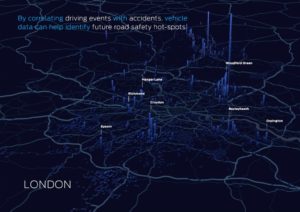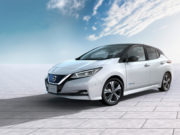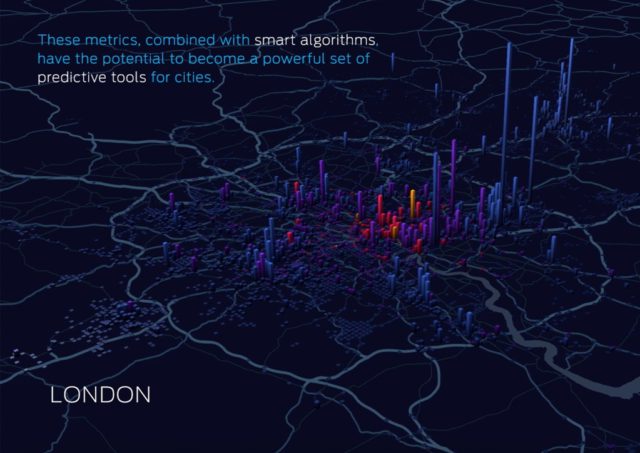It is often only after accidents have occurred that particular junctions or stretches of road are identified as problematic for drivers, cyclists or pedestrians. Now Ford has come up with a means by which big data could potentially help cities identify locations which, if the authorities do nothing, are most likely to be the scene of future traffic incidents.
To help find the answer, Ford Smart Mobility, spent the last year recording 1 million kilometres of vehicle and driver behaviour. That happened in and around London.
Ford tracked vehicle journeys in the city and logged driving data from driving events
Such are braking, the severity of that braking, and even where hazard warning lights were in use.
This helped to identify “near-misses”. The specialists then cross-referenced this information against existing accident reports. They built an algorithm to determine the likelihood of where future incidents might occur.
“We believe our insights have the potential to benefit millions of people. Even very small changes could make a big difference whether in terms of traffic flow, road safety or efficiency. Maybe cutting back a tree that has obscured a road sign,” said Jon Scott, project lead at City Data Solutions.
This idea is just one opportunity from the Ford City Data Report. The report used data that was obtained and analysed with the consent of participants. It took its findings from more than 15,000 days of vehicle use, from 160 connected vans in the city. The fleet of vans covered more than 1 million kilometres. That is the equivalent of 20 times around the earth. And it delivered 500 million data points.

Ford is committed to delivering smart vehicles for a smart world
Each vehicle in the study had a simple plug-in device. It recorded the journey data and then sent it to the cloud for analysis. Data scientists from Ford’s Global Data Insight and Analytics team were then able to analyse the information through an interactive dashboard. This technology could be in use in any road environment, not just in cities.
The report also investigated other opportunities. For example, how scheduling delivery van journeys for earlier in the day, before peak times, could benefit all road users. Also, how using journey data could help to identify the best locations for electric vehicle charging points.
“The Ford City Data Report is a showcase of what we at Ford can do with connected vehicle data, smart infrastructure, and our analytical capabilities. We are calling on cities to work with us to collectively solve problems that they can become even better places to live and work in,” said Sarah-Jayne Williams, director, Ford Smart Mobility, Ford of Europe.
Ford understands that any data-driven solution depends upon the willingness of drivers to share their data. But the company believes that where there is a clear benefit that consumers will be more open to supporting such a service.

































